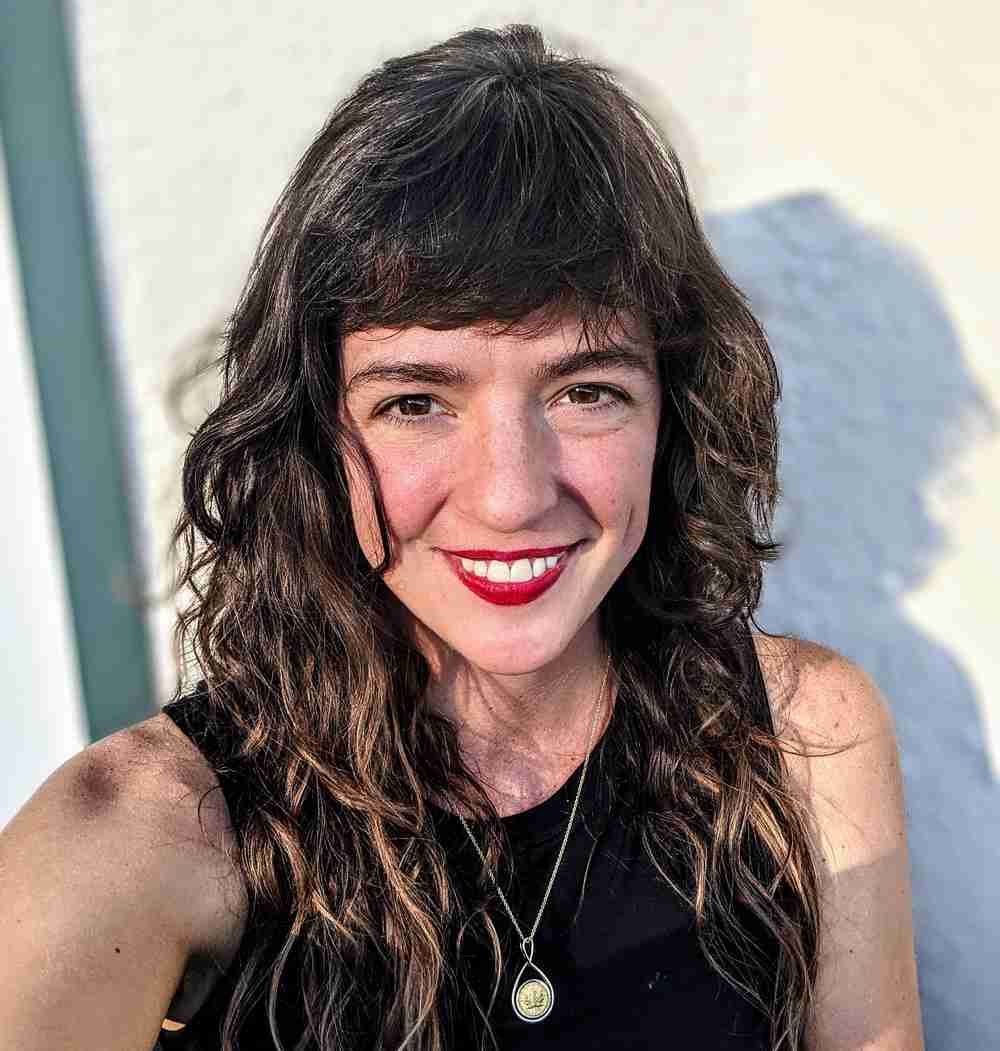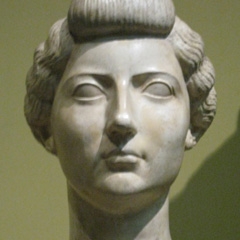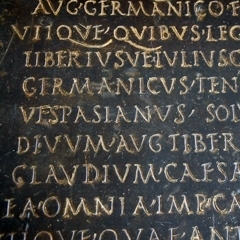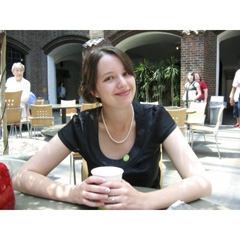Hannah Gaff, Class of 2008
Hannah Gaff, Class of 2008, is the recipient of a Fulbright U.S. Scholar Program award to Egypt.
MANY PEOPLE study Latin and Greek in college because of their love for the literature and the mythology, the history and the art, of ancient Greece and Rome.
Little do they realize what a practical education they're getting - one that offers valuable pre-professional training and marketable job skills.
At GVSU, our Latin and Greek students acquire and refine analytical and communications skills that make them better able to approach any problem creatively and successfully.
The study habits and work ethic they develop are those needed for success in demanding graduate and professional programs and in real-world careers.
Professional success
Scores reported by the Educational Testing Service for the Graduate Record Exam (the standardized admissions test used by most Graduate Schools) have consistently shown that majors in Classical Languages - Greek and Latin - perform exceptionally well.
Employers, graduate schools, and professional schools are looking for students who have challenged themselves and demonstrated superior intellectual and practical skills.
The Princeton Review raves:
We can't overestimate the value of a Classics major. Check this out: according to the Association of American Medical Colleges, students who major or double-major in Classics have a better success rate getting into medical school than do students who concentrate solely in biology, microbiology, and other branches of science. Crazy, huh?
Furthermore, according to Harvard Magazine, Classics majors (and math majors) have the highest success rates of any majors in law school. Believe it or not: political science, economics, and prelaw majors lag fairly far behind.
This is the advice offered by the Law School Admissions Council (the organization that administers the LSAT) to its own member institutions:
It is proper to prefer students who have taken courses such as those that develop skills in both written and oral communications, develop analytical and problem-solving skills, or promote familiarity with the humanities and social sciences to understand the human condition and the social context in which legal problems arise.
"LSAC Statement of Good Admission and Financial Aid Practices" [2003], pg. 2
For practical-minded people, Latin and Greek represent the kind of serious mental rigor and discipline that is an excellent training for real life.
Life-long education
Latin and Greek, however, can be more than the best means to achieve excellent training and preparation for future challenges. Studying Classics can also be the springboard to a lifelong experience with literature, philosophy, and culture.
Learning the languages allows one to meet the ancient cultures of Greece and Rome on their own terms, to examine the wellsprings of the Western tradition, and to challenge conscious and subconscious assumptions about life, values, and knowledge.
Standing out
Classics students at GVSU distinguish themselves as scholars in the study of literature, philosophy, history, and art; work on archaeological excavations; visit museums; and travel and study abroad.
Working closely with members of the faculty, they have ready access to the departmental office suite, lounge, and library.
As a Department this is something we encourage: it leads to close relationships between students and teachers, and it promotes cooperation, discussion, and intellectual interaction among students.
These are the hidden, and often neglected, elements of a first-rate education.
Self-knowledge and self-confidence
Just as a career should be more than a matter of keeping body and soul together, an education should be more than a means to an end. Students who succeed and thrive in Classics can love what they're doing at the same time that they're showing the world they know what they're doing.

Hannah Gaff, Class of 2008, is the recipient of a Fulbright U.S. Scholar Program award to Egypt.

"I chose to study Classics because the field is so enrapturing. The department has helped me to foster and to develop these interests into a true passion for the discipline."

"The analytical thinking law professors want to instill in students is the same type of thinking I need to read Greek and Latin."

"I first got interested in Classics through a Latin class as a first-year student. I learned more English grammar in that class than any previous classes in English. As a writer, I found that very valuable."

Shortly after receiving her diploma, Mayes filled out more than 20 applications and received five interviews and three offers across the country.